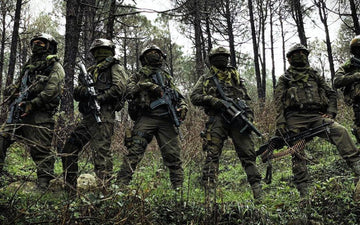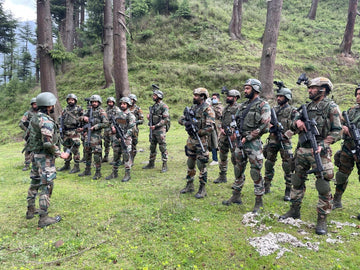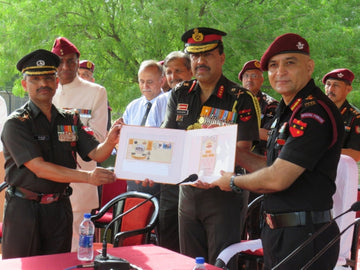The Military Nursing Service (MNS) holds a distinct and pivotal position within the Indian Armed Forces, comprising dedicated and skilled officers who ensure the health and well-being of military personnel and their families. Life as an MNS officer is multifaceted, rooted in compassion, professionalism, and a commitment to the nation. This article delves into the responsibilities, challenges, and significant contributions of MNS officers in India, unpacking their career trajectories and the unique opportunities they encounter.
Introduction
The role of MNS officers transcends traditional nursing; they are integral to the operational efficacy of the Indian Armed Forces. From providing critical medical care in combat zones to participating in peacekeeping missions across the globe, MNS officers embody resilience and dedication. Their journey, beginning from the rigorous selection process to extensive training and continuous professional development, reflects a narrative of service, sacrifice, and pride.
Historical Context
The Military Nursing Service has a rich historical lineage dating back to World War I, where military nurses played an essential role in caring for the injured. Initially, in India, nursing duties within the Armed Forces were performed by civil and military nurses, but the necessity for a structured nursing service gave rise to the establishment of the MNS in 1888. Over the years, the MNS has evolved significantly, adapting to the changing healthcare needs of the armed forces and participating in various humanitarian missions domestically and internationally.
Role and Responsibilities of an MNS Officer
At the core of an MNS officer's duties lies patient care, which encompasses several critical responsibilities:
- Direct Patient Care: MNS officers assess, plan, implement, and evaluate patient care for military personnel and their families. They execute treatment plans, administer medications, and apply critical nursing protocols.
- Administrative Duties: Beyond nursing, MNS officers often take on administrative roles, managing healthcare facilities, coordinating with interdisciplinary teams, and ensuring compliance with established healthcare policies.
- Education and Advocacy: Another vital component of their role is educating military personnel regarding health and wellness. This includes conducting health awareness programs and advocating for health and safety policies within the military community.
Eligibility and Selection
To embark on the path of an MNS officer, candidates must meet specific eligibility criteria:
- Gender and Citizenship: Only female Indian citizens can apply, ensuring the unique female-centric culture of the service is upheld.
- Educational Qualifications: Candidates are required to possess a B.Sc. Nursing or a Post Basic B.Sc. Nursing degree from an Indian Nursing Council recognized institution.
- Physical Fitness: Compliance with the physical and medical fitness criteria set by the Armed Forces is mandatory.
- Selection Process: The recruitment process includes a written examination covering nursing subjects, followed by an interview. The candidates must exhibit both clinical acumen and military aptitude.
Comprehensive Training
Once selected, MNS officers undergo rigorous training:
- Military Nursing Training: Officers typically enroll in a 4-year B.Sc. Nursing program at one of the six Army Nursing Colleges located throughout India. This curriculum is designed to prepare them for the complexities of military nursing, combining theoretical knowledge with practical training.
- Short Service Commission Course: For those with existing nursing qualifications, a condensed military training course is offered to transition them into military service effectively. This training not only includes advanced nursing practices but also military protocols, leadership skills, and tactical operations.
Career Progression
The career trajectory for an MNS officer is progressive and rewarding:
- Rank Structure: MNS officers begin their careers as Lieutenants and advance through the ranks to Major General, contingent upon performance, experience, and role-specific qualifications.
- Diverse Roles: Career progression opens the door to various positions, such as ward sister, nursing superintendent, and leadership roles in military hospitals.
- Specialization: MNS officers have opportunities to specialize in areas such as critical care, pediatrics, or mental health, providing avenues for skill enhancement and professional growth.
Service Conditions
Serving as an MNS officer involves unique experiences:
- Deployment: MNS officers are deployed in various military hospitals and field units, often in challenging environments where they must adapt quickly to changing circumstances.
- International Assignments: Engagement in international peacekeeping missions allows MNS officers to serve beyond Indian borders, demonstrating India's commitment to global health and humanitarian assistance.
- Benefits: MNS officers enjoy the same benefits as other officers in the Indian Armed Forces, including housing allowances, comprehensive medical facilities, and retirement pension schemes, making the role both fulfilling and secure.
Challenges Faced by MNS Officers
MNS officers encounter numerous challenges:
- High-Pressure Environment: Working in military hospitals, especially during deployments, subjects MNS officers to high-stress situations where they must make quick decisions with life-or-death implications.
- Work-Life Balance: The demanding nature of military commitments can impact personal life, making it challenging to maintain a work-life balance while adhering to military discipline.
- Physical and Emotional Toll: Additionally, the nature of their work, often dealing with trauma and loss, can lead to emotional strain. Support systems and mental health resources are crucial to help officers cope.
Opportunities in the MNS
Despite the challenges, the MNS offers significant opportunities:
- Professional Growth: Continuous education and training programs ensure that MNS officers stay updated with the latest nursing practices and technologies.
- Network: Being part of a structured military establishment allows for a strong professional network, fostering camaraderie and support among officers.
- Public Recognition: The integral role MNS officers play garners public respect and recognition, enhancing their professional identity.
Statistical Data and Research Insights
As of recent reports, the MNS is a vital component of the Army Medical Corps:
- The exact number of officers serving in the MNS may fluctuate, but estimates suggest that there are several hundred active-duty MNS officers across various military hospitals and medical units.
- The demand for qualified nursing professionals in the armed forces remains high, reflecting broader global trends in healthcare, where specialized nursing care is paramount.
- The service upkeep peerless standards of care, fostering an environment where excellence in nursing is not just a goal but an ongoing commitment.
Comparative Analysis
MNS officers stand apart from civilian nursing roles in several respects:
- Training and Discipline: The primary distinction lies in their military training, which encompasses combat readiness and military ethics, equipping them uniquely for the challenges of a military environment.
- Career Scope: While civilian nurses may have more conventional career paths, MNS officers enjoy a variety of roles within military and humanitarian contexts, expanding their scope of practice.
- Work Environment: The structured military environment provides additional layers of support and interprofessional collaboration that may be less pronounced in civilian sectors.
Future Trends and Predictions
The future of the MNS is promising, influenced by various socio-political dynamics:
- Technological Advancements: As healthcare technology continues to evolve, the integration of telemedicine and digital health solutions will likely shape the training and daily functions of MNS officers.
- Gender Equality: As more women enter historically male-dominated fields, the MNS may continue to promote gender diversity and female leadership in the armed forces.
- Enhanced Global Roles: With India’s growing presence in international peacekeeping, we can expect MNS officers to participate more actively in global health initiatives, helping shape international standards for military nursing.
Conclusion
The life of an MNS officer is characterized by tough challenges and rewarding experiences. They stand as a testament to courage, compassion, and patriotism, providing indispensable medical care amidst the rigors of military life. As the demand for skilled nursing professionals continues to grow, MNS officers will play a crucial role in not just shaping military healthcare but also influencing broader narratives around women's empowerment in the armed forces. Their contributions are invaluable; serving the nation, they not only address immediate healthcare needs but also foster a culture of service, empathy, and resilience.
To those contemplating a journey to become MNS officers, the path is filled with opportunities to serve, lead, and inspire others in the quest for health and well-being within the military landscape. For more resources and information on pursuing a career in the Military Nursing Service, you may consider exploring SSBCrack and SSBCrackExams, which offer comprehensive materials and support for aspiring candidates.





